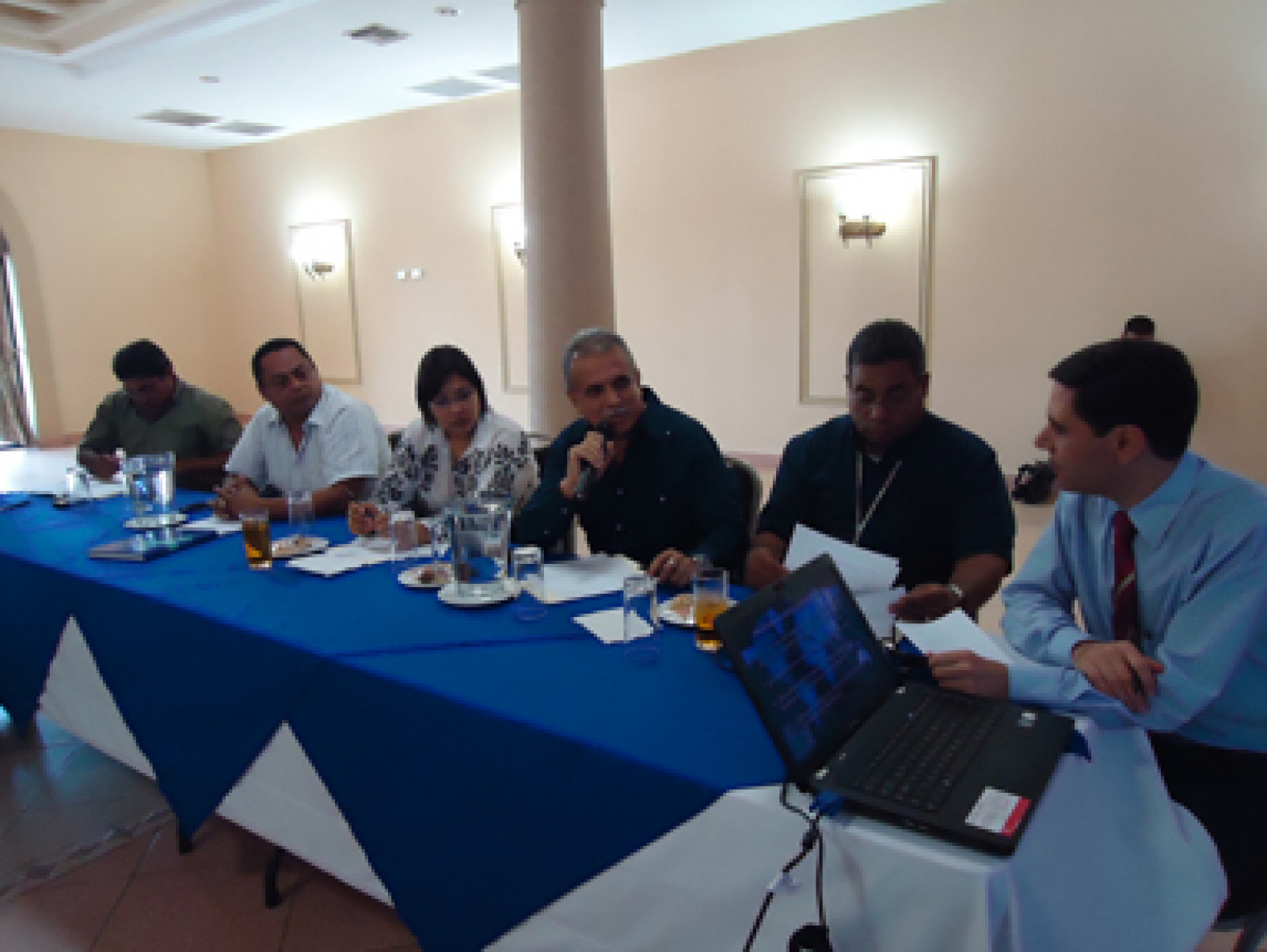
SHARE
A constitutional crisis and coup d’etat tore fault lines across Honduran society in 2009, and the rifts have yet to heal. To help Hondurans reconcile their differences and revive their democracy, NDI launched a series of eight “democracy dialogues” to bring together leaders of traditional political parties, civil society and the organized resistance to the coup for a structured, respectful interaction.
The first two forums were held in the northern port cities of La Ceiba and San Pedro Sula on June 22 and 23, and two more took place in the capital city of Tegucigalpa on July 7 and 14. NDI will continue to host democracy dialogues into the fall.
It was “the first time that all the departmental political forces have sat around the same table to discuss the problems facing this nation,” a participant in the La Ceiba forum said. A party leader who attended the San Pedro Sula forum called it a “collective catharsis.”
The first two dialogues brought together regional leaders from the five registered parties - the Liberal, National, Christian Democratic, Democratic Unification and the Social Democratic Innovation and Unity parties - as well as the National Popular Resistance Front, a coalition of grassroots organizations and individuals. These groups, which feel disaffected from the political system, have called for a constituent assembly and new constitution.
The forums allowed delegates to discuss the problems and challenges facing Honduras, including disenchantment with and distrust of democracy, poverty and inequality, and a lack of citizen security in a country that has the highest murder rate in the world among nations not at war.
The participants agreed on a number of actions and priorities to pursue through future collaboration:
- expanding mechanisms for citizen participation, such as referenda;
- holding presidential and regional authority elections at different times,
- create more avenues for political participation by youth, women and other traditionally marginalized groups;
- increasing the advancement of public sector employees based on merit rather than political party connections;
- developing mechanisms to limit vote buying in campaigns; and
- supporting education as a means to improve the quality of Honduras’ economy and democracy.
Efforts to convene a constituent assembly to rewrite the Honduran constitution continue to make headlines and represented the only significant point of disagreement during the dialogues.
In Tegucigalpa, the most recent dialogue focused on the evolution of political parties. Honduras is grappling with the split of the Liberal Party into a faction supporting the efforts of the former President Manuel Zelaya -- who was forced into exile following the 2009 coup and is now back home -- to transform the National Popular Resistance Front into a rival political party and those who remain loyal to the Liberal Party brand.
Attendees included representatives from all five traditional political parties, magistrates from the country’s election tribunal, city officials, journalists, academics and labor organizers. They agreed that the political party system in Honduras is in a phase of a historic transition and requires reforms to integrate new demands for political participation by women, the lesbian, gay, bisexual and transgender community, Afro-descendants, youth and indigenous populations. Participants also concurred that parties can do a better job of aggregating interests and negotiating political conflict.
A group of experts, including Harry Brown, United Nations Development Programme (UNDP) Panama researcher; Catalina Soberanis, former president of the Congress of Honduras; and Victor Hugo Cárdenas, former vice president of Bolivia, presented case studies in party system evolution from around the region.
Since opening an office in Honduras in April 2011, NDI has been working to promote reconciliation, enhance opportunities for the disaffected and traditionally disenfranchised to participate in politics, assist political parties in becoming more internally democratic, and empower a new generation of young leaders from all sectors of society.
The forums were co-sponsored by UNDP and the Konrad Adenauer Foundation.
Related:
- Central American Leaders See Transparency as Key to Public Security »
- NDI’s final report on the Honduran 2009 general election»
- Following Generally Peaceful Elections, Honduran Leaders Need to Begin Reconciliation Process, NDI Delegation Says»
Published August 9, 2011.


